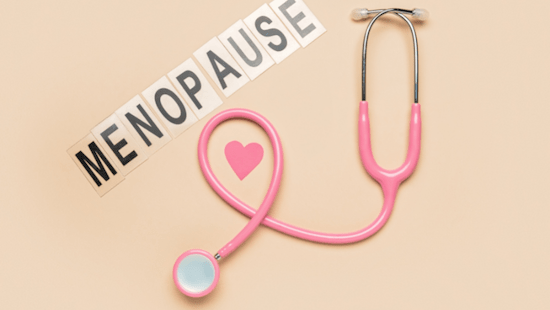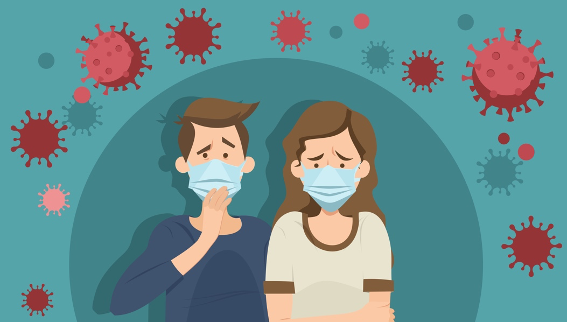The #1 Cause To Why Most Women Find It Hard To Lose Weight
Is your weight loss journey at a standstill? You've been working hard at the gym and eating right, but the scale won't budge. If you're going through menopause, you may be experiencing something called "weight loss resistance."
This is when your body starts to hold on to fat instead of burning it for energy.
One of the reasons this happens is because of high levels of the stress hormone cortisol. Cortisol is released in response to stress and tells your body to store fat and conserve energy. That's why it's essential to find ways to reduce cortisol during menopause.
Below are some practical strategies to help you lower your cortisol levels and get back on track with your weight loss goals:
What Causes The Increase In Cortisol During Menopause?
The primary cause of increased cortisol during menopause is the decrease in estrogen in your body. Estrogen helps regulate cortisol production, and when its levels drop, the release of cortisol increases.
This increase in cortisol can lead to various health issues, including anxiety, depression, weight gain, and other hormone imbalances.
Cognitive changes are another primary concern for women during peri- and menopause. These mental changes often referred to as “brain fog,” can be caused by hormonal imbalance and sleep disturbances.
Sleep disturbances can lead to an increase in cortisol levels and a decrease in slow waves of sleep, which play a crucial role in our learning and memory processes. Lower estrogen and testosterone levels can also contribute to cognitive decline during this time.
Why Is It Important To Reduce Cortisol During Menopause?
When you go through menopause, your body’s cortisol levels naturally increase. This can lead to various health issues, such as fatigue, weight gain, mood swings, and anxiety. Additionally, it can interfere with the production of other essential hormones like estrogen and progesterone.
When cortisol levels increase during peri- and menopause, the body experiences changes that can lead to weight gain. Cortisol causes an increase in appetite and cravings for unhealthy food. It also reduces the insulin released by the pancreas, resulting in higher blood sugar levels that cause fat storage. To make matters worse, the decrease in estrogen and testosterone levels also leads to weight gain.
Therefore, women must reduce cortisol levels during menopause to improve physical and mental health. You can stay healthy and active during this critical time in your life by lowering cortisol levels!
Ways To Reduce Cortisol During Menopause
Elevated cortisol can have a range of adverse effects on physical health and emotional well-being. Fortunately, there are some steps we can take to reduce cortisol during menopause and make the transition a little easier.
- Get enough sleep: Sleep is essential for managing cortisol levels and combating stress. Aim to get seven to nine hours of quality sleep each night, as this can make all the difference in keeping your hormones balanced.
- Practice relaxation techniques: Mindful activities such as yoga, meditation, and tai chi can help reduce stress levels by calming your body and mind.

- Eat a healthy diet: Eating a balanced diet full of fresh fruits and vegetables will provide the nutrients needed to support the hormones during this time. In order to relieve stress levels, it is important to limit processed foods and refined sugars.
Ingredients To Reduce Cortisol
Several natural ingredients can help reduce cortisol levels.
One of these ingredients is ashwagandha, an ancient herb used for centuries to help reduce stress and anxiety. Ashwagandha has a calming effect on the body and helps to support healthy cortisol levels.
It is a powerful adaptogen that can help reduce stress's physical and emotional symptoms. It works by helping to activate GABA (Gamma-Aminobutyric Acid) receptors in the brain, which helps to block signals of anxiety and stress. Additionally, ashwagandha contains tryptophan, an essential amino acid precursor to serotonin, which can help elevate mood.
Other ingredients that help reduce cortisol levels include magnesium, B vitamins, and omega-3 fatty acids. Magnesium helps the body cope with stress by regulating hormone levels, while B vitamins help reduce anxiety and improve mood. Omega-3s also play a role in reducing cortisol levels and promoting a healthy balance of hormones.
By incorporating these ingredients into your daily routine during menopause, you can help reduce cortisol levels and maintain a healthy balance of hormones.
Final Words:
Reducing cortisol levels during menopause ensures a healthy and comfortable transition. Not only can reducing cortisol help to reduce the symptoms of menopause, but it can also increase overall health and well-being.
Many strategies can reduce cortisol levels, such as exercise, relaxation techniques, stress management, and lifestyle changes. By incorporating these strategies into your lifestyle, you can ensure that menopause is an enjoyable experience that helps you to feel great and enjoy life to the fullest!
Hear from our customers how MenoSlim Pack has helped them to lose those muffin top and shake off unhealthy weight gains naturally!
Let MenoSlim Pack Help You To Get Rid Of Unwanted Belly Fat Today!
If you want to experience the weight loss benefits like Angelia and 12,000 other women all around the world... try MenoSlim Pack today and enjoy up to 20% off!














POST COMMENTS